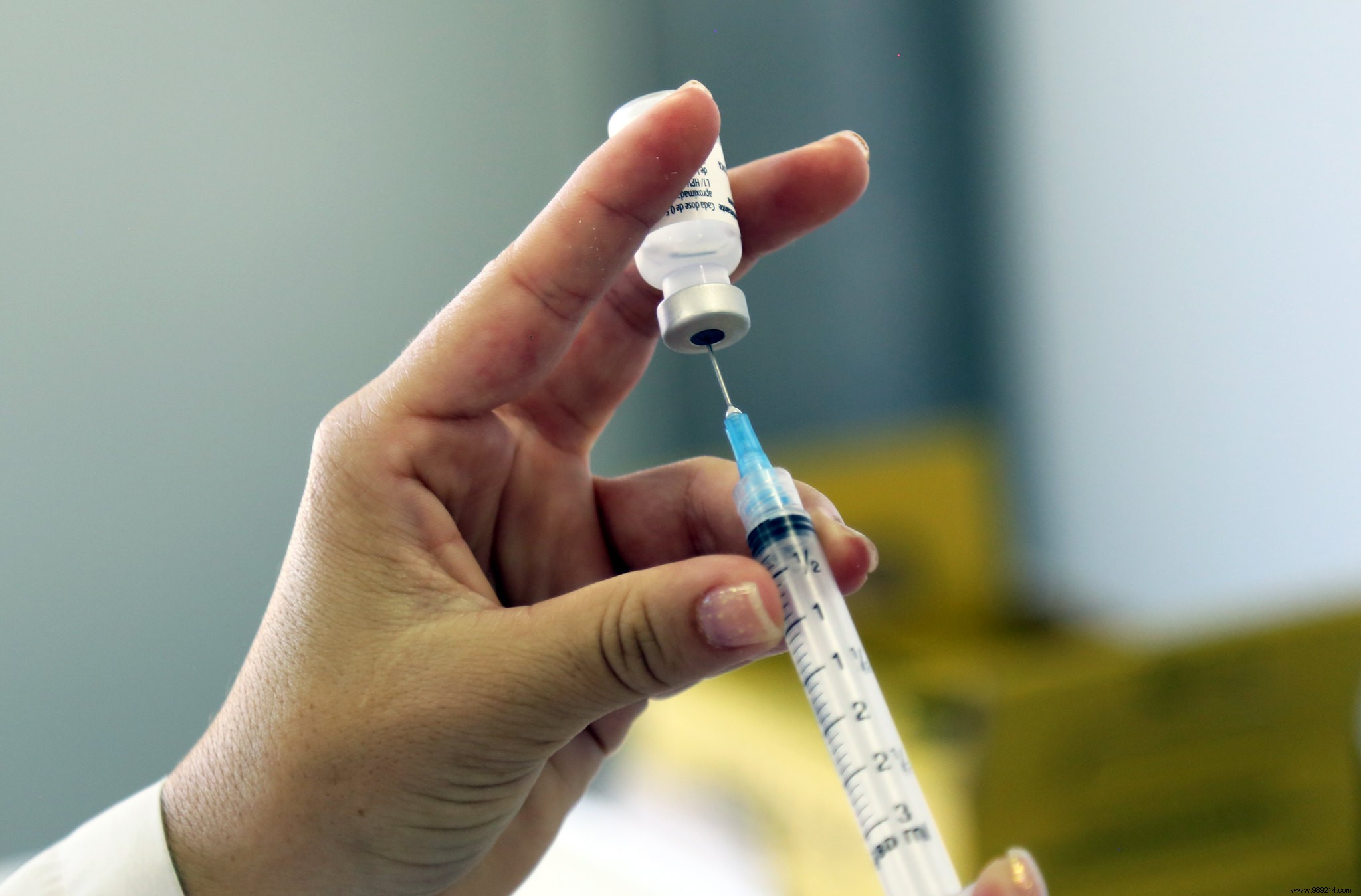In response to the Covid-19 crisis, anti-vaxxers are using familiar ways. But this health crisis, which is now affecting the entire planet, could change everything.
Vaccination is a controversial topic. It all started with conspiracy theorist Andrew Wakefield who some 20 years ago published a research paper linking the MMR (measles, mumps and rubella) vaccine to autism . If this research has since been discredited , a distrust of vaccines has nevertheless taken root in the minds of millions of people. This "antivax" movement continues today, galvanized by the circulation of information enabled by social networks.
Given the violence of the COVID-19 pandemic (more than 2,100,000 cases and more than 145,000 deaths to date), and its possible propensity to become season, top public health officials agree that developing a vaccine is the only way today to allow the world to return to normal activities . A solution that obviously goes against the "antivax", who use familiar tactics to assert their opinions.
Dorit Reiss, a law professor at the University of California at Hastings (USA), has been studying the movement for several years. According to him, one of the most commonly used tactics is to deny the true consequences of the health crisis . In this specific case, antivax will minimize the risk of mortality , arguing that only older people succumb to the disease.
However, we have known since the start of the epidemic that this observation is false. If indeed the youngest seem more resistant, many have unfortunately died , when others are fighting, on ventilators, stuck in intensive care. Moreover, these statements do not take into consideration the health workers who, on the front line and for lack of means, kill themselves at the task of keeping all the patients alive.
Still according to Dorit Reiss, to be antivaccine in today's world, you must also subscribe to certain conspiracy theories .
Some supporters of this movement denounce in particular the race for the vaccine currently observed in several institutions solely motivated by profit, when we could focus on more natural remedies aimed at boosting our immune system.
Larry Cook, an anti-vaccine influencer who runs the popular "Stop Mandatory Vaccination" Facebook page, recently claimed on his personal page that the containment measures deployed around the world are a way to make it easier for governments to hunt people down , only to then demand that they be tested for the virus. That way, he explained, the authorities would make vaccination compulsory for everyone.
When some people denounce the development of a virus that accidentally escaped from a laboratory to contaminate the planet, others also point the finger at the latest technologies. For example, Keri Hilson, an American singer with 4.2 million Twitter followers, recently posted now-deleted tweets that attempted to link the coronavirus crisis to 5G mobile networks.
“People have been trying to warn us about 5G for YEARS “, she wrote, adding that 5G was launched in China in November 2019, just before the epidemic broke out. These ideas were taken very seriously. So much so that in the United Kingdom, activists have damaged 5G equipment in Liverpool, Birmingham and Belfast, and threatened staff working for the operators.

For some researchers, this global protest movement against vaccination could nevertheless evaporate in the face of the new coronavirus.
In the United States, a mother of three, a longtime member of online "antivax" groups, for example, recently admitted that Covid-19 was spreading. change his point of view. Interviewed by Reuters , the one who calls herself Stéphanie, for fear of reprisals from the most committed, now estimates her chances of being immunized at 50/50 if a vaccine were to be developed.
"I definitely thought about it she said, also expressing frustration at the antivax community's downplaying of the severity of the pandemic. “We are all affected by this virus, and yet they still say it is a hoax .
But it is public opinion that, more generally, is changing on the subject. In France, for example, while a third of respondents in 2018 said they thought vaccines were unsafe, a new survey, conducted last month, found that only 18% of respondents would refuse a vaccine against COVID-19 .
According to Catherine Flores Martin, executive director of the California Immunization Coalition, it's also a safe bet thatpeople will forgive anti-vaccination beliefs much less as a result of this health episode . “There will always be believers , she said, but I think other people will be much less tolerant of the subject after seeing how the disease can affect their lives” .
Source